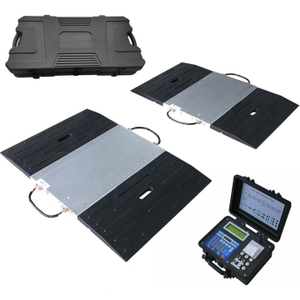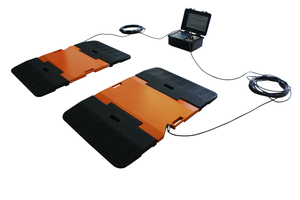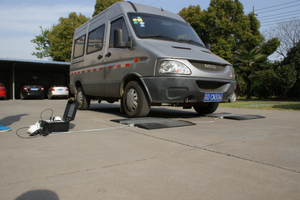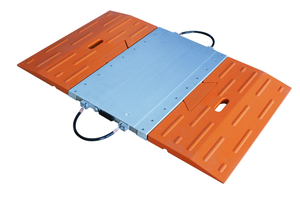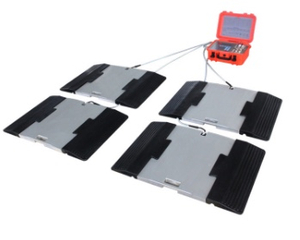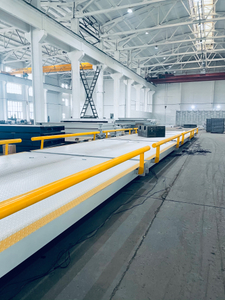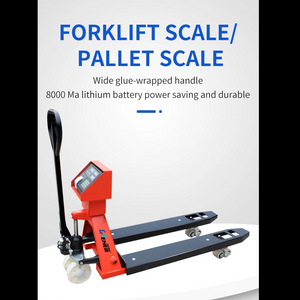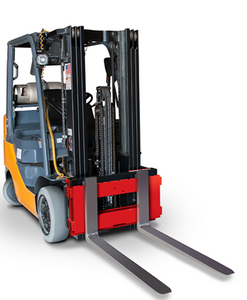The Definitive Guide to Selecting the Optimal Truck Scale for Your Business Operations
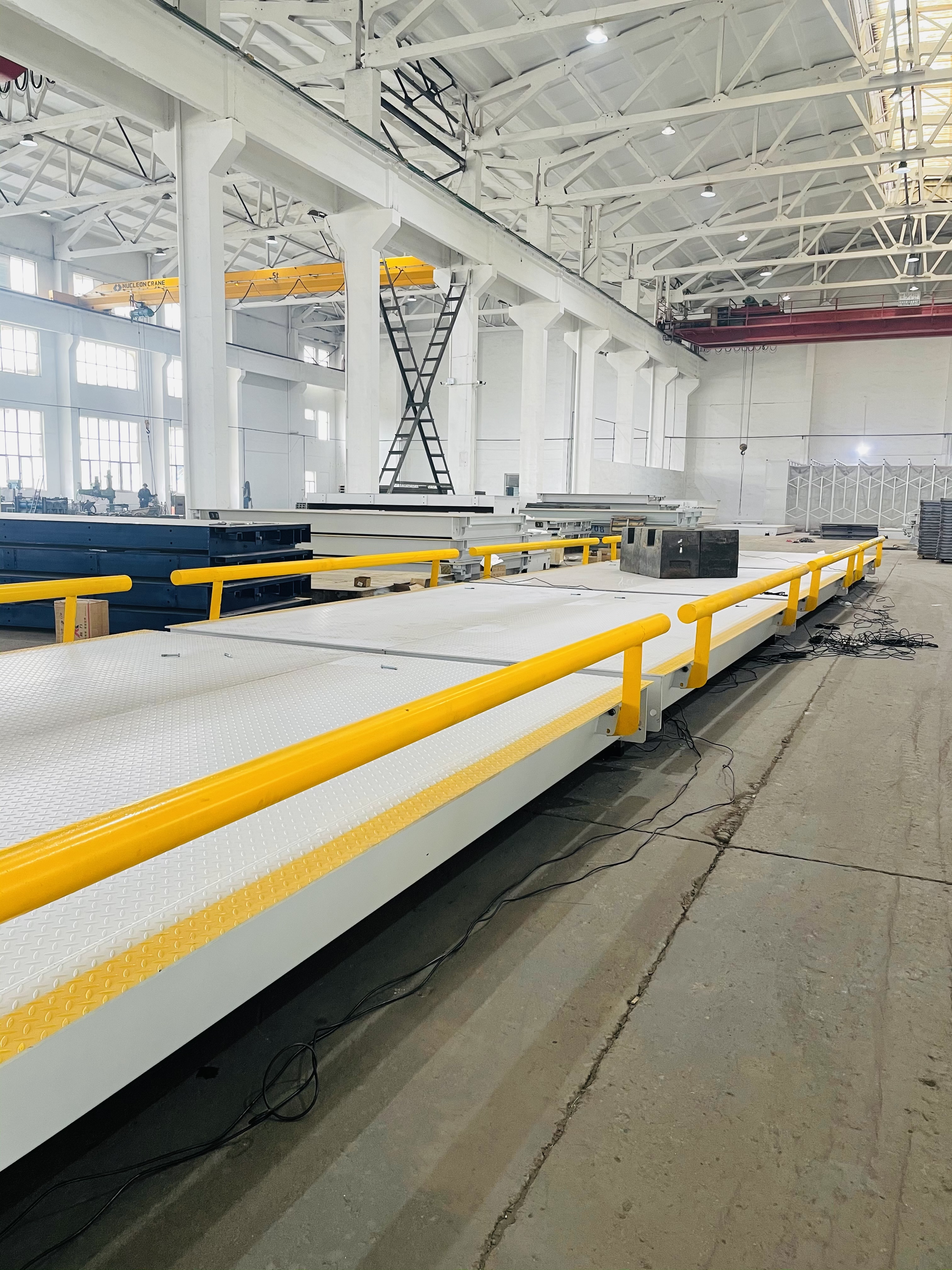 In today's fast-paced industrial and logistics environments, precision weighing solutions have become indispensable tools for maintaining operational efficiency, ensuring regulatory compliance, and maximizing profitability. Truck scales, also known as weighbridges, serve as critical infrastructure across numerous sectors including mining, agriculture, waste management, logistics, and construction. Selecting the right truck scale is not merely an equipment purchase—it represents a strategic investment that can significantly impact your business's productivity, accuracy, and long-term success.
In today's fast-paced industrial and logistics environments, precision weighing solutions have become indispensable tools for maintaining operational efficiency, ensuring regulatory compliance, and maximizing profitability. Truck scales, also known as weighbridges, serve as critical infrastructure across numerous sectors including mining, agriculture, waste management, logistics, and construction. Selecting the right truck scale is not merely an equipment purchase—it represents a strategic investment that can significantly impact your business's productivity, accuracy, and long-term success.
This comprehensive guide provides an in-depth exploration of all critical factors to consider when choosing a truck scale, offering valuable insights to help you make an informed decision that aligns perfectly with your operational requirements and business objectives.
Understanding Your Operational Requirements
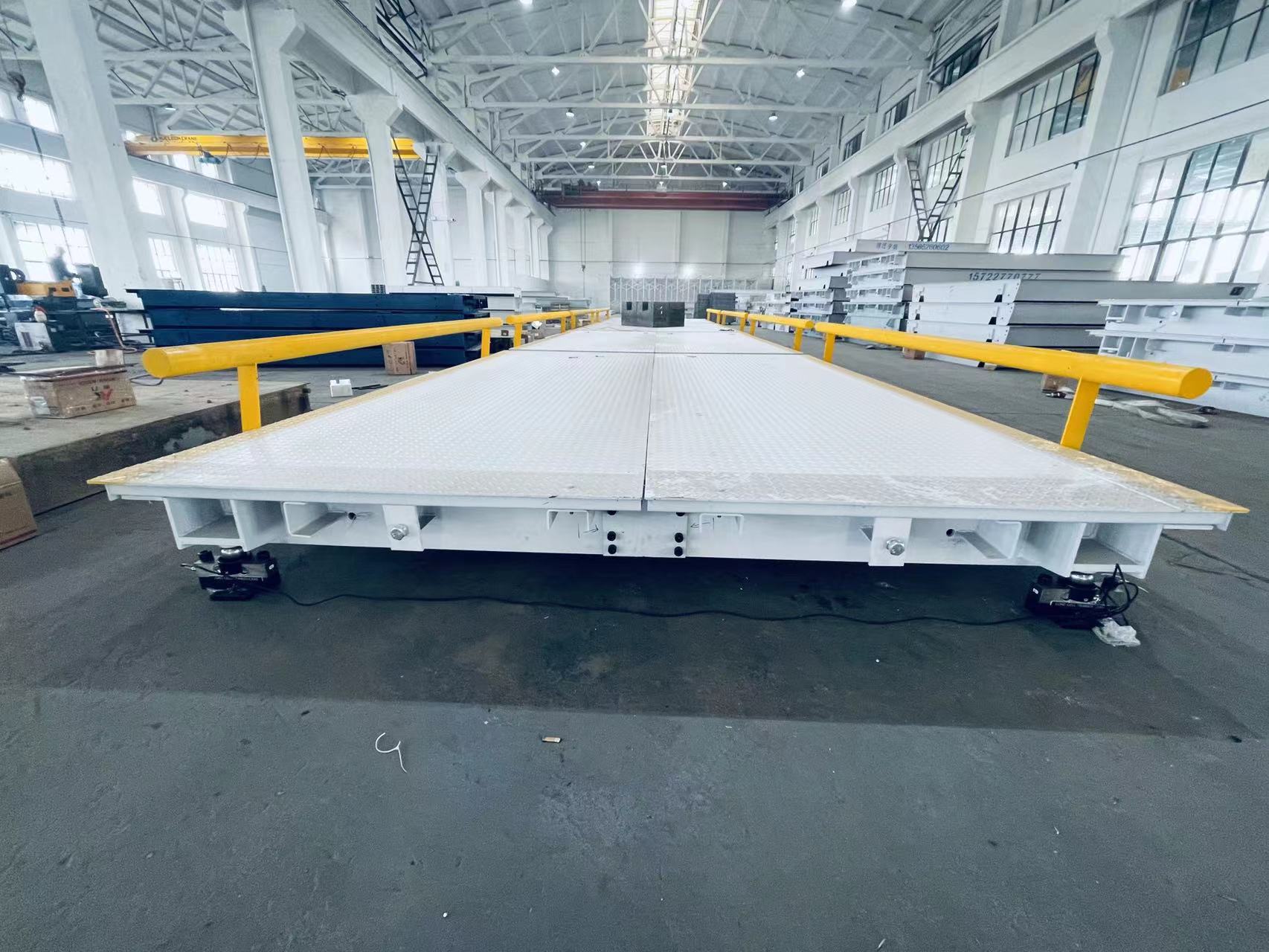 The first step in selecting the ideal truck scale involves thoroughly assessing your specific business needs. Different industries present unique challenges and requirements that must be carefully considered. For instance, mining and construction operations demand heavy-duty scales with exceptional durability to withstand constant use with abrasive materials, often requiring load capacities ranging from 80 to 200 tons. These scales must be built to endure harsh conditions while maintaining accuracy over extended periods.
The first step in selecting the ideal truck scale involves thoroughly assessing your specific business needs. Different industries present unique challenges and requirements that must be carefully considered. For instance, mining and construction operations demand heavy-duty scales with exceptional durability to withstand constant use with abrasive materials, often requiring load capacities ranging from 80 to 200 tons. These scales must be built to endure harsh conditions while maintaining accuracy over extended periods.
Agricultural applications present a different set of considerations.Scales used in farming operations need robust protection against moisture and corrosion, particularly when weighing grain, livestock, or fertilizers. The equipment must resist the damaging effects of humidity, chemical exposure, and frequent washdowns while providing reliable measurements for transactions and inventory management.
Waste management and recycling facilities face perhaps the most challenging environments of all. The scales employed in these settings must withstand exposure to corrosive materials, extreme temperature fluctuations, and heavy impact loads. Chemical-resistant coatings and rugged construction become essential features in these applications to ensure longevity and consistent performance.
Logistics and freight companies have their own distinct requirements, where speed and precision take priority. High-traffic shipping yards need scales capable of rapid weighing cycles to maintain efficient loading operations without creating bottlenecks. Integration with fleet management systems and automated data recording becomes particularly valuable in these fast-moving environments.
The frequency of use represents another crucial factor in scale selection. Operations with continuous, high-volume weighing needs should prioritize heavy-duty models designed for minimal maintenance and maximum uptime. These scales typically feature robust construction, advanced load cell technology, and weatherproof components to ensure reliable performance under constant use. Conversely, businesses with seasonal or intermittent weighing requirements might find more value in portable or modular scale solutions that offer flexibility while reducing capital expenditure.
Regulatory compliance forms an essential consideration that cannot be overlooked. If your scale will be used for commercial transactions, it must meet stringent legal-for-trade requirements specific to your region. In the United States, this means NTEP certification, while international operations may require OIML compliance. European markets demand CE marking under the Measuring Instruments Directive (MID). Understanding these certifications and ensuring your chosen scale meets all necessary standards protects your business from potential legal complications and ensures the validity of your weighing data.
Exploring Truck Scale Types and Configurations
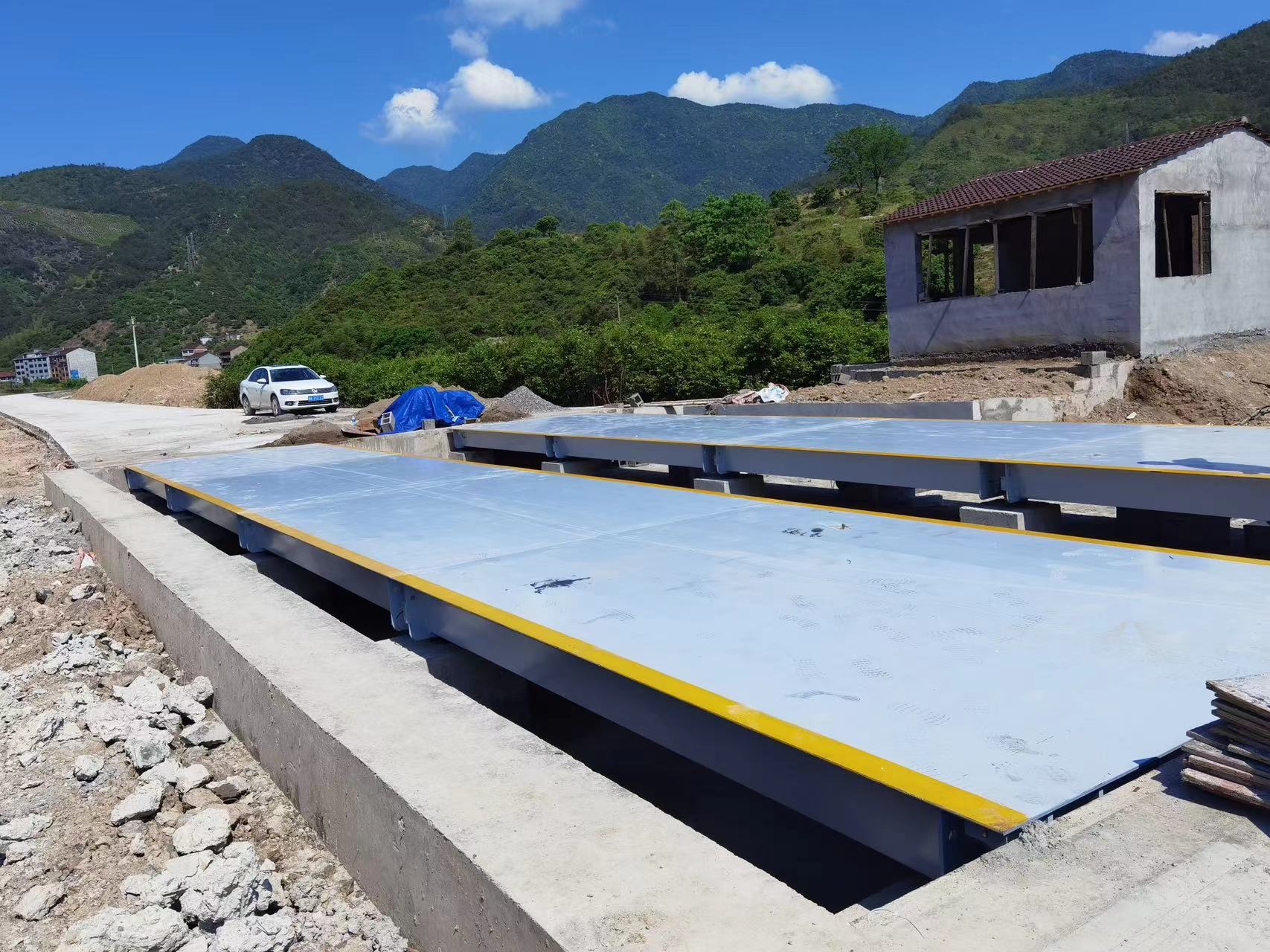 The market offers various truck scale configurations, each with distinct advantages tailored to different operational environments. Pit-mounted scales, installed flush with ground level, provide several benefits including space efficiency and protection from environmental factors. This design eliminates the need for ramps, allowing vehicles to drive straight onto the scale without elevation changes. The below-grade installation shelters critical components from wind, rain, and temperature extremes, contributing to longer service life. However, this configuration requires significant site preparation including excavation and proper drainage systems, resulting in higher initial installation costs.
The market offers various truck scale configurations, each with distinct advantages tailored to different operational environments. Pit-mounted scales, installed flush with ground level, provide several benefits including space efficiency and protection from environmental factors. This design eliminates the need for ramps, allowing vehicles to drive straight onto the scale without elevation changes. The below-grade installation shelters critical components from wind, rain, and temperature extremes, contributing to longer service life. However, this configuration requires significant site preparation including excavation and proper drainage systems, resulting in higher initial installation costs.
Surface-mounted scales present a more flexible alternative that can be installed with minimal site preparation. These above-ground systems typically cost less to install and allow for easier access to components for maintenance and servicing. They do require approach ramps, which consume additional space, and may expose the scale to greater environmental wear. Modern surface-mounted designs have addressed many traditional limitations through innovative engineering, offering improved durability and performance that rivals pit-mounted options in many applications.
The choice between electronic (digital) and mechanical scales represents another critical decision point. Digital scales have become the industry standard for most applications due to their superior accuracy, advanced features, and easier integration with modern data systems. These scales provide precise measurements with minimal drift over time, often featuring self-diagnostic capabilities and remote monitoring options. Mechanical scales, while sometimes chosen for their lower upfront cost, generally require more frequent calibration and lack the connectivity features that enable seamless data integration in contemporary operations.
Portable truck scales have emerged as an excellent solution for temporary sites or businesses requiring mobility. These modular systems can be relocated as needed, offering flexibility for seasonal operations, construction projects, or rental businesses. While they may not match the precision and durability of permanent installations for high-volume use, modern portable scales provide impressive performance that meets most industrial requirements.
Critical Technical Considerations
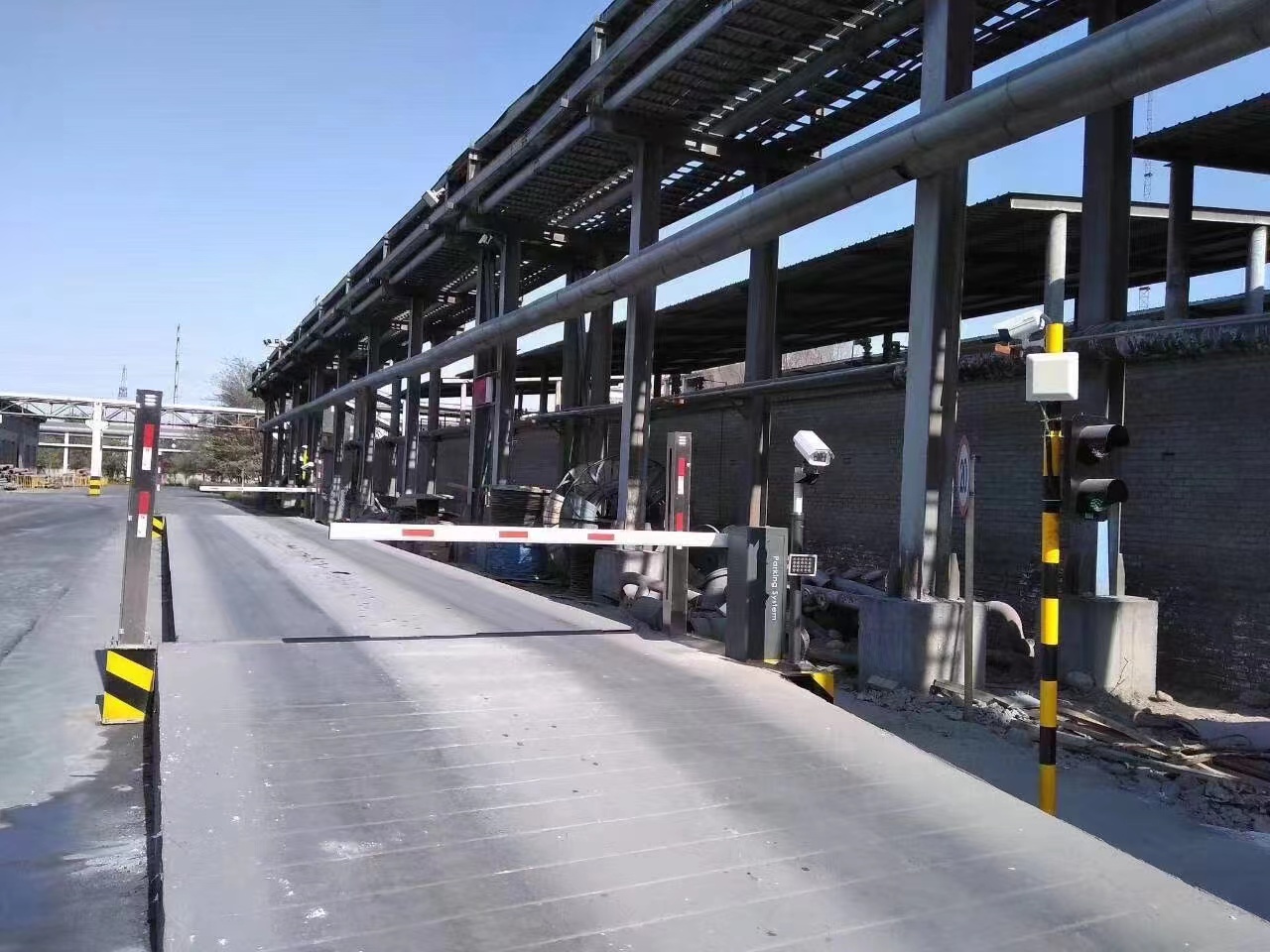 Load capacity stands as one of the most fundamental specifications in scale selection. Choosing a scale with appropriate capacity requires careful analysis of your typical and maximum expected loads. While it might be tempting to select a scale rated just above your current needs, incorporating growth projections into your decision ensures your investment remains viable as your business expands. Industry standards recommend selecting a scale with a capacity at least 20-25% greater than your heaviest anticipated load to account for potential overload situations and to extend the equipment's service life.
Load capacity stands as one of the most fundamental specifications in scale selection. Choosing a scale with appropriate capacity requires careful analysis of your typical and maximum expected loads. While it might be tempting to select a scale rated just above your current needs, incorporating growth projections into your decision ensures your investment remains viable as your business expands. Industry standards recommend selecting a scale with a capacity at least 20-25% greater than your heaviest anticipated load to account for potential overload situations and to extend the equipment's service life.
Platform size and design significantly impact usability and accuracy. The weighing surface must accommodate your largest vehicles with sufficient clearance on all sides. Standard truck scale widths typically range from 3 to 3.5 meters, with lengths varying from 16 to 24 meters to accommodate different vehicle configurations. The platform's structural design affects both durability and measurement accuracy, with modern scales utilizing advanced steel or concrete constructions optimized for minimal deflection under load.
Construction materials play a pivotal role in determining a scale's longevity and performance. Steel deck scales offer excellent strength-to-weight ratios and generally prove more cost-effective, making them popular across many industries. However, they may require additional corrosion protection in harsh environments. Concrete deck scales provide superior resistance to chemical attack and moisture penetration, though they come with increased weight and typically higher costs. Some manufacturers offer hybrid designs that combine the benefits of both materials, featuring concrete-filled steel frames that deliver exceptional durability.
Accuracy requirements vary significantly depending on application. Legal-for-trade applications demand the highest precision, typically requiring compliance with Class III standards. Industrial applications not involving commercial transactions may utilize Class IIII scales, which offer slightly relaxed tolerances at reduced cost. Modern digital scales can achieve remarkable accuracy levels, with many models capable of maintaining ±0.1% of capacity or better under proper conditions.
Advanced Features and Future-Proofing
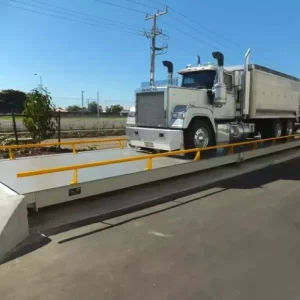 The integration of smart technologies has transformed truck scales from simple weighing devices into sophisticated data collection hubs. Modern scales often feature advanced connectivity options including Ethernet, Wi-Fi, and cellular data transmission, enabling real-time monitoring and data integration with enterprise systems. Cloud-based solutions allow for centralized data management across multiple sites, providing valuable business intelligence and operational insights.
The integration of smart technologies has transformed truck scales from simple weighing devices into sophisticated data collection hubs. Modern scales often feature advanced connectivity options including Ethernet, Wi-Fi, and cellular data transmission, enabling real-time monitoring and data integration with enterprise systems. Cloud-based solutions allow for centralized data management across multiple sites, providing valuable business intelligence and operational insights.
Automated vehicle identification systems represent another valuable advancement, using RFID or license plate recognition technology to streamline weighing processes. These systems automatically associate weight data with specific vehicles or shipments, reducing manual entry errors and improving operational efficiency. When integrated with ticketing or inventory management software, they create seamless workflows that minimize handling time and maximize throughput.
Predictive maintenance capabilities have become increasingly common in high-end scale systems. Using data from embedded sensors, these systems can monitor component health and alert operators to potential issues before they cause downtime. This proactive approach to maintenance helps optimize service intervals and extends equipment life, providing significant long-term cost savings.
Sustainability considerations are growing in importance for many businesses. Energy-efficient designs that minimize power consumption, along with durable constructions that extend replacement cycles, contribute to reduced environmental impact. Some manufacturers now offer scales incorporating recycled materials or designs that facilitate easier component recycling at end-of-life.
Maintenance and Lifecycle Considerations
 A well-planned maintenance program significantly extends scale life and ensures consistent accuracy. Digital scales generally require less frequent calibration than mechanical systems, but all scales benefit from regular professional servicing. Establishing a maintenance schedule based on usage intensity and environmental conditions helps prevent unexpected downtime. Many modern scales feature remote diagnostics capabilities that allow technicians to identify and often resolve issues without physical site visits, reducing service costs and minimizing operational disruptions.
A well-planned maintenance program significantly extends scale life and ensures consistent accuracy. Digital scales generally require less frequent calibration than mechanical systems, but all scales benefit from regular professional servicing. Establishing a maintenance schedule based on usage intensity and environmental conditions helps prevent unexpected downtime. Many modern scales feature remote diagnostics capabilities that allow technicians to identify and often resolve issues without physical site visits, reducing service costs and minimizing operational disruptions.
The warranty terms offered by manufacturers provide valuable insight into product quality and expected lifespan. Reputable manufacturers typically offer comprehensive warranties covering structural components for 5-10 years and electronic components for 1-3 years. Understanding warranty coverage details, including what constitutes normal wear versus manufacturing defects, helps set realistic expectations for long-term ownership costs.
Making the Final Decision
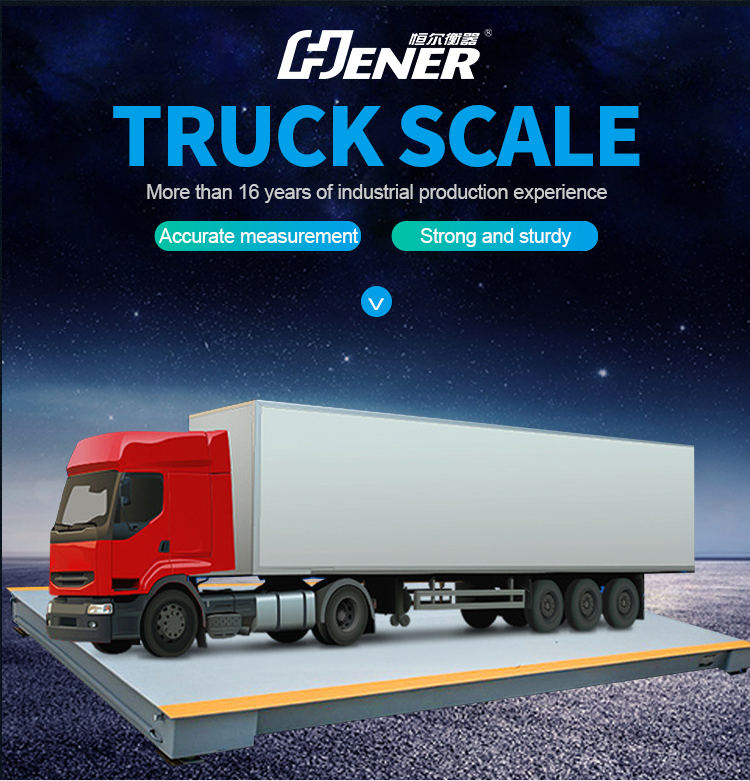 Selecting the optimal truck scale requires balancing numerous technical, operational, and financial considerations. While upfront cost inevitably influences the decision, evaluating total cost of ownership provides a more accurate picture. A slightly more expensive scale with lower maintenance requirements and longer service life often proves more economical over time than a cheaper alternative requiring frequent repairs and early replacement.
Selecting the optimal truck scale requires balancing numerous technical, operational, and financial considerations. While upfront cost inevitably influences the decision, evaluating total cost of ownership provides a more accurate picture. A slightly more expensive scale with lower maintenance requirements and longer service life often proves more economical over time than a cheaper alternative requiring frequent repairs and early replacement.
Partnering with an established manufacturer with a proven track record in your specific industry ensures access to appropriate expertise and support. Look for suppliers who offer comprehensive services including site evaluation, installation supervision, and ongoing technical support. References from similar operations can provide valuable real-world insights into product performance and supplier reliability.
The ideal truck scale should not only meet your current needs but also accommodate future business growth. Considering potential changes in operations, regulations, or technology trends helps future-proof your investment. Modular or expandable systems may offer the flexibility needed to adapt to evolving requirements without complete system replacement.
Conclusion
Choosing the right truck scale represents a critical business decision with far-reaching implications for operational efficiency, regulatory compliance, and financial performance. By thoroughly evaluating your specific requirements, understanding available technologies, and considering long-term operational needs, you can select a weighing solution that delivers optimal value throughout its service life.
The modern truck scale market offers an array of sophisticated options capable of meeting even the most demanding industrial requirements. From rugged pit-mounted systems for harsh mining environments to advanced digital platforms with cloud connectivity for logistics operations, today's solutions provide unprecedented accuracy, reliability, and operational intelligence.
Investing time in careful evaluation and selection ensures your truck scale becomes a valuable asset that contributes to operational excellence rather than a source of ongoing challenges. With the right system in place, you can achieve accurate, efficient weighing operations that support your business objectives today and into the future.
For businesses seeking to optimize their weighing operations, consulting with experienced professionals can provide valuable guidance tailored to specific operational needs and industry requirements. A well-informed decision today lays the foundation for years of reliable service and measurable business benefits.
English
العربية
Français
Русский
Español
Português
Deutsch
italiano
Nederlands
Tiếng Việt
ไทย
Polski
Türkçe
ភាសាខ្មែរ
Bahasa Melayu
Filipino
Bahasa Indonesia
Română
Čeština
Монгол
қазақ
Српски
हिन्दी
Slovenčina
Slovenščina
Norsk
Svenska
Ελληνικά
Suomi
Հայերեն
Latine
Dansk
Shqip
Hrvatski
Afrikaans
Gaeilge
Eesti keel
Oʻzbekcha
latviešu
Azərbaycan dili
Беларуская мова
Български
ქართული
guarani
Кыргызча
Lietuvių
Македонски
Malti
Soomaali
Тоҷикӣ
Türkmençe

 In today's fast-paced industrial and logistics environments, precision weighing solutions have become indispensable tools for maintaining operational efficiency, ensuring regulatory compliance, and maximizing profitability. Truck scales, also known as weighbridges, serve as critical infrastructure across numerous sectors including mining, agriculture, waste management, logistics, and construction. Selecting the right truck scale is not merely an equipment purchase—it represents a strategic investment that can significantly impact your business's productivity, accuracy, and long-term success.
In today's fast-paced industrial and logistics environments, precision weighing solutions have become indispensable tools for maintaining operational efficiency, ensuring regulatory compliance, and maximizing profitability. Truck scales, also known as weighbridges, serve as critical infrastructure across numerous sectors including mining, agriculture, waste management, logistics, and construction. Selecting the right truck scale is not merely an equipment purchase—it represents a strategic investment that can significantly impact your business's productivity, accuracy, and long-term success. The first step in selecting the ideal
The first step in selecting the ideal  The market offers various
The market offers various  Load capacity stands as one of the most fundamental specifications in scale selection. Choosing a scale with appropriate capacity requires careful analysis of your typical and maximum expected loads. While it might be tempting to select a scale rated just above your current needs, incorporating growth projections into your decision ensures your investment remains viable as your business expands. Industry standards recommend selecting a scale with a capacity at least 20-25% greater than your heaviest anticipated load to account for potential overload situations and to extend the equipment's service life.
Load capacity stands as one of the most fundamental specifications in scale selection. Choosing a scale with appropriate capacity requires careful analysis of your typical and maximum expected loads. While it might be tempting to select a scale rated just above your current needs, incorporating growth projections into your decision ensures your investment remains viable as your business expands. Industry standards recommend selecting a scale with a capacity at least 20-25% greater than your heaviest anticipated load to account for potential overload situations and to extend the equipment's service life. The integration of smart technologies has transformed
The integration of smart technologies has transformed A well-planned maintenance program significantly extends scale life and ensures consistent accuracy. Digital scales generally require less frequent calibration than mechanical systems, but all scales benefit from regular professional servicing. Establishing a maintenance schedule based on usage intensity and environmental conditions helps prevent unexpected downtime. Many modern scales feature remote diagnostics capabilities that allow technicians to identify and often resolve issues without physical site visits, reducing service costs and minimizing operational disruptions.
A well-planned maintenance program significantly extends scale life and ensures consistent accuracy. Digital scales generally require less frequent calibration than mechanical systems, but all scales benefit from regular professional servicing. Establishing a maintenance schedule based on usage intensity and environmental conditions helps prevent unexpected downtime. Many modern scales feature remote diagnostics capabilities that allow technicians to identify and often resolve issues without physical site visits, reducing service costs and minimizing operational disruptions. Selecting the optimal
Selecting the optimal 